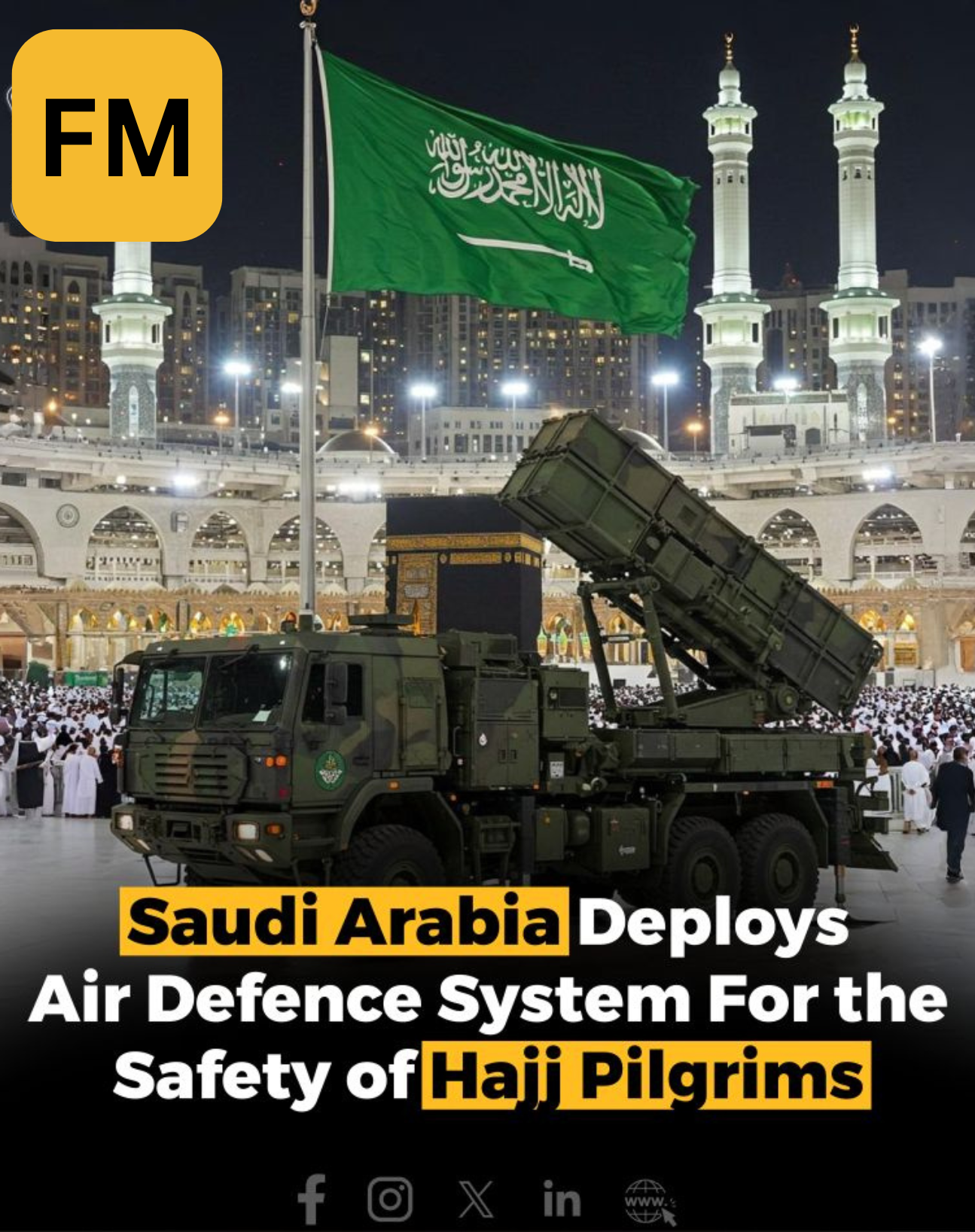In a significant move to bolster security and ensure the safety of pilgrims, Saudi Arabia has deployed state-of-the-art air defence systems in Mecca ahead of the 2025 Hajj season. This strategic initiative is part of the Kingdom’s broader efforts to safeguard over 1.5 million pilgrims expected to perform the annual Islamic pilgrimage, one of the largest religious gatherings in the world.
Enhanced Security for Pilgrims
The deployment of advanced air defense systems underscores Saudi Arabia’s commitment to providing a secure environment for Hajj pilgrims. The systems, which include cutting-edge radar and missile defense technology, are designed to detect and neutralize potential airborne threats. Given Mecca’s status as Islam’s holiest city, the Saudi government has prioritized the highest levels of protection to prevent any security breaches during the pilgrimage.
A Comprehensive Safety Strategy
The air defense deployment is part of a multi-layered security plan that includes ground surveillance, counter-terrorism measures, and cybersecurity protocols. Saudi authorities have also implemented advanced crowd management technologies, AI-powered monitoring systems, and emergency response teams to address any contingencies. The General Directorate of Public Security has coordinated with military and intelligence agencies to ensure seamless operations throughout the Hajj season.
Regional and Global Implications
Saudi Arabia’s proactive security measures come amid rising geopolitical tensions in the Middle East. The Kingdom has faced threats from militant groups in the past, making robust defense mechanisms essential. By fortifying Mecca’s airspace, Saudi Arabia aims to deter potential attacks and reassure pilgrims of their safety. The move has been welcomed by Muslim-majority nations and international organizations, highlighting the Kingdom’s leadership in managing the Hajj.
Pilgrim Reassurance and Technological Integration
The Saudi government has emphasized that the deployment of air defense systems will not disrupt the spiritual experience of pilgrims. Instead, it ensures that devotees can perform their religious duties without fear. The integration of technology in Hajj security reflects Saudi Arabia’s Vision 2030 goals, which include leveraging innovation for public safety and urban development.
Conclusion
As the 2025 Hajj season approaches, Saudi Arabia’s deployment of advanced air defense systems in Mecca reaffirms its dedication to protecting pilgrims. With a combination of military preparedness, technological advancements, and international cooperation, the Kingdom continues to set a global standard for large-scale event security. Pilgrims from around the world can now focus on their spiritual journey, knowing that their safety remains a top priority for the Saudi authorities.
The Hajj remains a testament to Saudi Arabia’s ability to host millions while maintaining peace and security—a feat that reinforces its pivotal role in the Islamic world.

